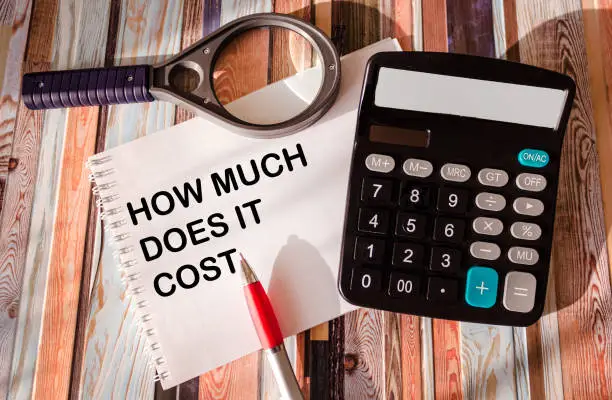Managing money effectively is one of the most important skills for achieving financial stability and long-term success. However, in a world where consumerism dominates and spending temptations are everywhere, it’s easy to waste money on things you don’t really need. Whether it’s buying that extra coffee every morning, signing up for multiple streaming services, or impulse-shopping online, these small habits can quickly add up and impact your financial health.
Cutting unnecessary expenses doesn’t mean depriving yourself of everything you enjoy. Instead, it’s about making smart decisions, prioritizing your needs over wants, and finding ways to make your money work harder for you. In this guide, we’ll explore the best strategies to identify, reduce, and eliminate unnecessary expenses without sacrificing your quality of life.
Why Cutting Unnecessary Expenses Is Important
Before we dive into strategies, let’s understand why this matters:
- Frees Up Money for Goals: Every dollar you save by reducing wasteful spending can go toward paying off debt, building an emergency fund, or investing for the future.
- Reduces Financial Stress: Overspending often leads to anxiety and debt. Cutting unnecessary costs helps you feel more in control.
- Improves Financial Security: By cutting back on waste, you create a safety net for unexpected expenses.
Now, let’s break down practical, actionable steps to stop wasting money.
1. Track Your Spending Habits
The first step to cutting expenses is knowing where your money is going. Many people underestimate how much they spend on non-essential items because they don’t track their expenses.
How to Track Effectively
- Use budgeting apps like Mint, YNAB (You Need a Budget), or PocketGuard.
- Review your bank statements and credit card bills every month.
- Categorize expenses into essentials (rent, groceries, bills) and non-essentials (eating out, entertainment, impulse purchases).
Example: If you notice you’re spending $200 every month on dining out, you’ve identified an area to cut back.
2. Differentiate Between Wants and Needs
A major reason people overspend is the inability to separate needs from wants.
- Needs: Rent, utilities, groceries, transportation, health care.
- Wants: Fancy coffee, designer clothes, premium subscriptions, luxury gadgets.
Ask yourself before every purchase:
✅ “Do I really need this, or do I just want it?”
✅ “Can I afford it without using credit?”
If it’s a want, delay the purchase for 24–48 hours. This reduces impulse buying dramatically.
3. Cut Back on Subscriptions and Memberships
Streaming platforms, gym memberships, magazines, software tools – subscriptions can drain your wallet.
What to Do:
- Audit your subscriptions: List all recurring charges and cancel what you don’t use regularly.
- Share accounts: Many platforms allow family plans (Netflix, Spotify, etc.).
- Switch to free alternatives: For example, use YouTube workout videos instead of a costly gym membership.
Pro tip: Use services like Truebill or Trim to identify and cancel unused subscriptions.
4. Reduce Dining Out and Coffee Runs
Eating out or grabbing coffee every day can be a budget killer. Even spending $10 a day on lunch equals $300 a month, or $3,600 a year!
Strategies to Save:
- Meal prep: Cook at home and pack your lunch.
- Limit eating out to special occasions.
- Brew coffee at home: Investing in a good coffee maker saves hundreds annually.
5. Avoid Impulse Purchases
Impulse buying is one of the biggest culprits of wasted money. Retailers use psychological tricks like flash sales, limited-time offers, and “buy now, pay later” schemes to tempt you.
How to Control Impulse Spending:
- Unsubscribe from marketing emails and notifications.
- Remove saved credit card info from online stores.
- Follow the 30-day rule: If you want to buy something non-essential, wait 30 days. If you still want it, and can afford it, buy it.
6. Use Cashback, Discounts, and Coupons Wisely
While spending less is ideal, you can also save on the money you do spend.
- Use cashback apps like Rakuten or Honey for online shopping.
- Check for promo codes before completing any online purchase.
- Join loyalty programs for stores you frequently shop at.
However, don’t buy something just because it’s on sale. A discount on something unnecessary is still wasted money.
7. Review Your Bills and Negotiate Lower Rates
You may be overpaying for services like cable, internet, or insurance.
- Call your service providers and ask for discounts or promotional rates.
- Compare providers and switch if you find a better deal.
- Bundle services (internet + phone + TV) for savings.
8. Set Spending Limits with a Budget Plan
A budget is your best defense against overspending.
- Follow the 50/30/20 rule:
- 50% for needs (rent, bills, groceries)
- 30% for wants (entertainment, dining out)
- 20% for savings and debt repayment
- Use cash envelopes for discretionary spending to avoid going over budget.
9. Buy Generic Instead of Brand Names
In many cases, generic products are just as good as name brands, especially for groceries and household items.
- Switch to store-brand cleaning products, pantry staples, and medications.
- Compare ingredients and quality before paying extra for branding.
10. Reevaluate Big Expenses
Beyond small daily habits, look at big-ticket items like housing, transportation, and insurance.
- Downsize your home if you’re paying too much for rent.
- Refinance loans for better interest rates.
- Drive a used car instead of buying new to avoid depreciation costs.
11. Practice Minimalism
Minimalism isn’t about living with nothing—it’s about living with only what adds value to your life.
- Declutter your home and sell unused items for extra cash.
- Adopt a “one in, one out” rule: If you buy something new, get rid of an old item.
- Focus on experiences rather than accumulating stuff.
12. Automate Your Savings
Instead of waiting to save “what’s left,” pay yourself first by automating transfers to a savings account every payday. This reduces the temptation to spend extra cash on unnecessary things.
Final Thoughts
Cutting unnecessary expenses is about mindful spending, not deprivation. By tracking your expenses, prioritizing needs over wants, and making smart financial decisions, you can free up hundreds or even thousands of dollars each year. This money can then be redirected toward things that truly matter—financial freedom, investments, and future security.
Remember: Every small saving today leads to a bigger, brighter financial future tomorrow.




